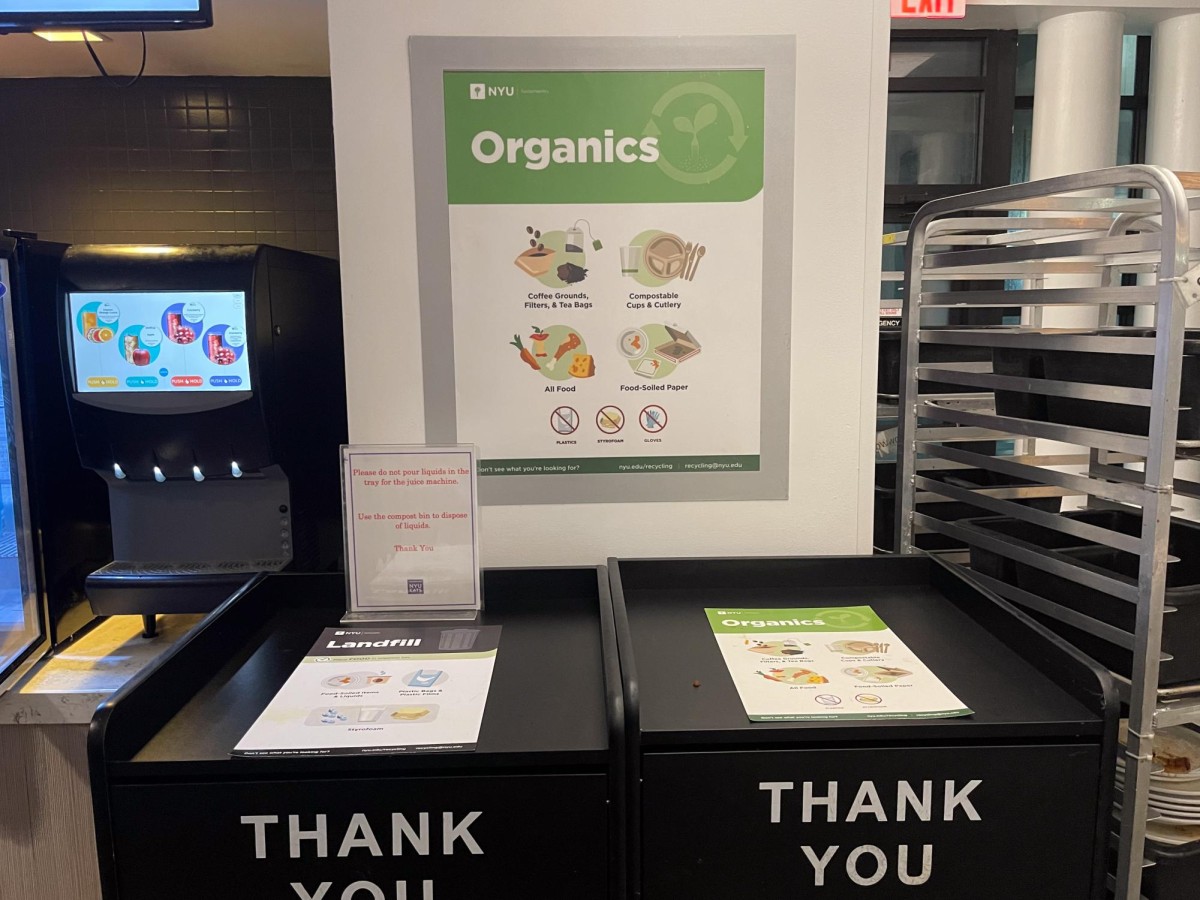On the corner of my kitchen counter, next to my roommate’s fancy coffee maker, sits a small white bowl crammed with moldy food scraps. Though no one has explicitly said it, I know my suitemates are not fans of this composting method. While my individual compost bin may not have a significant impact on universitywide food-waste reduction, implementing systems for composting in every dorm could.
Meal prep isn’t easy, and for college students learning to cook for the first time, it can be difficult to get to every grocery item before it goes bad. In New York alone, 250,000 tons of food is wasted every year, releasing nearly 120,000 metric tons of carbon dioxide into the atmosphere. By implementing composting systems in residence halls, NYU has a unique opportunity to address this issue and create a new norm in campus culture.
Installing composting systems in residence halls with kitchens can make a significant difference. NYU is a signatory to the Cool Food Pledge, which is a partnership with other global organizations that is focused on reducing food-related greenhouse gas emissions by 25% by 2030. NYU has committed to several initiatives including offering plant-based dining options and buying local produce. A commitment it lacks, however, is composting.
While several of the dining halls at NYU do have systems in place for discarding organic matter, this only accounts for students with meal plans. Upperclassmen living in dorms with kitchens are not required to purchase a meal plan, and as a result may not use the composting systems in NYU dining halls. In 2020, NYU Eats posted a video teaching students how to compost at home or in their dorm rooms. However, educating students on composting is futile if the university does not provide the necessary infrastructure to make it possible. Installing composting bins in dorms is not an impossible task — they already exist in both Washington Square Village and Silver Towers, apartment complexes owned by NYU that house graduate students and faculty. Why not extend that into undergraduate dorms too?
NYU’s Waste Management page suggests off-campus drop-off locations for compost. However, it is unrealistic to expect students to purchase their own compost bins and find time to dispose of the waste outside of their building.
Of course implementing composting in every dorm is not without challenges or costs. Purchasing quality countertop compost bins for every dorm would be necessary, costing between $20 to $50 each. Additional costs would include large-scale bins in every dorm, ideally with a disposal chute, and a team to manage waste collection. Despite the mess and occasional odor, composting remains essential, and NYU must address excessive food waste and improper disposal of organic matter in NYC and on its campus.
While students may not go through the effort of getting into composting on their own, providing easy-to-use infrastructure can drive change. NYU clearly understands the importance of composting, as evidenced by their waste collection guidelines. It is the university’s duty and responsibility to make these organic waste bins and composting systems widely available in all residence halls to encourage the culture of sustainability they claim to foster.
WSN’s Opinion section strives to publish ideas worth discussing. The views presented in the Opinion section are solely the views of the writer.
Contact Josie Leach at [email protected].























































































































































